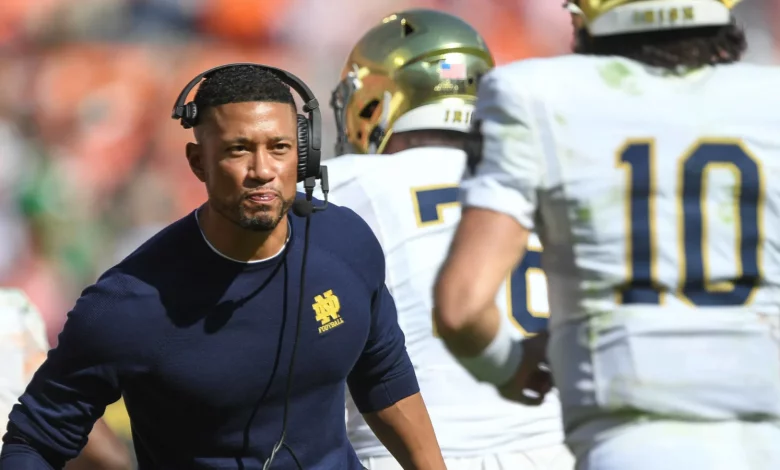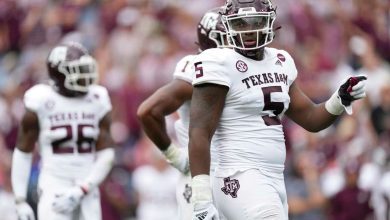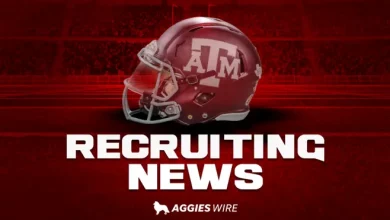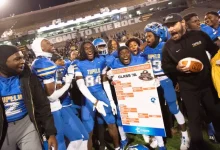In an era of conference realignment and super leagues, Notre Dame’s decision to remain independent is bold, preserving their unique tradition and national scheduling independence amid shifting college football landscape.

In the rapidly evolving landscape of college football, few programs possess the unique identity and storied history of the University of Notre Dame. As conference realignment accelerates and the prospect of super leagues looms large, Notre Dame’s decision to remain independent marks a significant departure from the trend toward conference affiliations. This move reflects a strategic commitment to tradition, national scheduling, and brand identity, even as other programs are increasingly entangled in conference alliances designed to maximize revenue and competitiveness.
This decision isn’t just about football; it’s about preserving an institution’s legacy, maintaining autonomy, and navigating an uncertain future in a sport undergoing fundamental transformation. To understand the significance of Notre Dame’s choice, it’s essential to explore the context of college football’s shifting landscape, the history of Notre Dame’s independence, the advantages and challenges of this stance, and the broader implications for college football.
The Historical Context: Notre Dame’s Unique Status
Founded in 1842, Notre Dame has long been one of college football’s most iconic programs, distinguished by its national following, rich tradition, and independence from conference constraints. Since the early days of college football, Notre Dame has operated outside the confines of a formal conference affiliation, choosing instead to schedule games across the country, often against the best teams from various regions.
This independence has allowed Notre Dame to cultivate a national schedule, attract marquee opponents, and maintain a distinct brand identity rooted in tradition. The Fighting Irish’s independence has also enabled them to negotiate their own media rights and maintain control over their scheduling and postseason appearances, including their historic relationship with the College Football Playoff (CFP).
While other programs have joined conferences for stability, revenue, and access to championships, Notre Dame’s independence has been a defining feature, symbolizing a commitment to tradition and national prominence.
The Current Landscape: Conference Realignment and Super Leagues
Over the past decade, college football has experienced seismic shifts:
- Conference Realignment: Major conferences have expanded, merged, and realigned to maximize television revenue and competitive advantage. The SEC and Big Ten, in particular, have grown significantly, adding prominent programs and forming expansive super conferences.
- Super Leagues: Rumors and plans for elite “super leagues” or closed-shop alliances have circulated, aiming to create a more lucrative, stable, and exclusive environment for the sport’s top programs and media partners.
- Media Rights and Revenue Disparities: The huge financial disparities have incentivized schools to seek conference affiliations that maximize TV revenue, with some programs sacrificing tradition for dollars.
These developments threaten Notre Dame’s traditional independence. Major conferences now negotiate massive media deals, and the prospect of a super league with a limited playoff system could marginalize independent programs.
Notre Dame’s Decision: An Emphasis on Tradition and Autonomy
In this context, Notre Dame’s announcement to remain independent is both a strategic and symbolic move. It underscores several core principles:
- Preservation of Tradition: Notre Dame’s independence is a cornerstone of its identity. The school’s storied history, iconic uniforms, and nationwide fanbase are intertwined with its ability to schedule diverse opponents and maintain a unique national profile.
- Scheduling Flexibility: Remaining independent grants Notre Dame control over its schedule, enabling them to face top-tier opponents across the country, maintain traditional rivalries (e.g., Navy, USC, Stanford), and attract national interest.
- Brand Control and Media Rights: Notre Dame’s media deal with NBC, which broadcasts all home games, is a crucial revenue stream and a symbol of their independence. The school’s ability to negotiate its media rights separately from conference deals is a significant advantage.
- Postseason Independence: While joining a conference can grant automatic bowl access or CFP considerations, Notre Dame’s independent status has historically allowed them to negotiate their postseason invitations, emphasizing merit over conference affiliation.
- Financial Stability and Future-Proofing: Notre Dame’s decision reflects confidence that their brand, media deals, and scheduling ability will sustain their competitiveness and revenue, even in a tumultuous environment.
Advantages of Remaining Independent
Notre Dame’s independence offers several tangible and intangible benefits:
- National Schedule: The ability to schedule a diverse array of opponents from different regions enhances national interest and recruitment.
- Brand Value: Maintaining independence preserves Notre Dame’s historic identity, appealing to alumni, recruits, and fans who value tradition.
- Media Negotiations: Control over media rights with NBC provides a stable revenue stream and scheduling flexibility.
- Postseason Autonomy: Notre Dame can negotiate its bowl and playoff appearances, avoiding potential restrictions or obligations tied to conference memberships.
- Recruiting Edge: The school’s independence and national exposure are attractive to recruits seeking a high-profile, tradition-rich program with diverse opponents.
Challenges and Risks of Remaining Independent
Despite its advantages, Notre Dame’s independence is not without risks, especially as the college football landscape becomes increasingly dominated by conference alliances:
- Financial Disparities: Conference affiliations often come with revenue-sharing models that provide significant financial stability. Notre Dame’s independent status means they miss out on some of these revenue pools.
- Playoff Access: As the CFP expands, conference champions often secure automatic bids, while independent teams must earn at-large bids, making postseason qualification more competitive.
- Scheduling Difficulties: Without a conference schedule, Notre Dame faces the challenge of securing high-quality opponents each year, which can be difficult, especially with the rise of conference-centric schedules.
- Potential Marginalization: If super leagues or exclusive conference alliances limit access to playoff-caliber opponents or postseason opportunities, independent programs like Notre Dame could find themselves at a competitive disadvantage.
- Conference Membership Considerations: While Notre Dame has flirted with joining conferences in the past (notably the Big Ten), the school’s leadership has maintained that independence best serves their mission and traditions. Nonetheless, the pressure to adapt remains.
Broader Implications for College Football
Notre Dame’s stance is a significant statement in the broader context of college football’s future. It signals that traditional institutions, with deep-rooted identities, are still willing to stand apart in the face of industry-wide consolidation.
Potential Outcomes:
- Model for Other Programs: Notre Dame’s decision could inspire other schools to prioritize tradition and independence, especially if they believe they can maintain competitiveness without conference ties.
- Influence on Conference Strategies: Conferences may seek to court independence-minded programs or negotiate special arrangements for schools like Notre Dame, recognizing their value.
- Impact on the Playoff System: The CFP’s expansion plans are likely to be influenced by the presence or absence of major independent programs. If independents continue to perform at a high level, they could push for more favorable postseason considerations.
- Media and Revenue Dynamics: The strategy to control media rights independently could challenge the current conference-centric media deals, prompting renegotiations and new models for revenue sharing.
The Future of Notre Dame’s Independence
While Notre Dame’s decision to remain independent is clear now, its future remains uncertain amid ongoing negotiations and shifting priorities in college sports:
- Potential for Future Conference Membership: Some speculate that Notre Dame might consider joining a conference like the Big Ten in the future if the landscape shifts further, especially if the conference offers a lucrative media deal or automatic CFP qualification.
- Continued Negotiation and Adaptation: Notre Dame’s leadership will likely continue to evaluate the landscape, balancing tradition with pragmatic considerations of competitiveness and revenue.
- Maintaining Their Brand: The school’s focus remains on preserving their unique identity, which has historically been a major driver of their sustained success and national appeal.
A Defining Moment for Notre Dame and College Football
Notre Dame’s decision to stay independent in an era of conference realignment and super leagues is a bold statement about tradition, autonomy, and strategic vision. It underscores a belief that the school’s storied history, national brand, and unique scheduling flexibility remain valuable assets in a sport undergoing rapid change.
While challenges remain—such as potential marginalization in a more conference-centric playoff system—Notre Dame’s independence allows them to craft a distinctive path that emphasizes their identity and values. The decision also highlights a broader tension within college football: the conflict between tradition and commercialization, independence and integration.
Ultimately, Notre Dame’s commitment to independence will serve as a litmus test for the future of college football. Will tradition and autonomy continue to hold sway, or will the financial allure of conference affiliations and super leagues reshape the sport into a more homogenized and commercially driven enterprise? Only time will tell, but for now, Notre Dame has boldly staked its claim as a symbol of independence amid a rapidly changing landscape.









